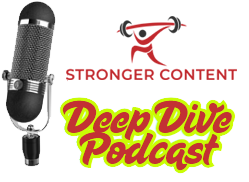MAY NOT BE REPRODUCED WITHOUT PERMISSION

At the heart of lean manufacturing is eliminating waste at every step, creating a more streamlined and efficient production system. Every improvement in efficiency can impact profitability, but it can often be challenging to identify areas to have optimal impact.
Business intelligence (BI) can play a key role, isolating key metrics to provide greater insight into your end-to-end supply chain. This granular data can form the basis for continuous improvement in your operations to offset continued increases in labor and materials costs.
Benefits of Business Intelligence in Lean Manufacturing
By leveraging BI tools, manufacturers can gain a comprehensive, real-time view of their production process, supply chain, inventory, and customer demand patterns. This visibility enables data-driven decisions to optimize workflow and minimize inefficiencies.
One significant advantage of BI tools is that you can aggregate data from multiple sources to create a centralized data repository. For example, combining data from enterprise resource planning (ERP) systems, customer relationship management (CRM) platforms, and Internet of Things (IoT) devices and sensors provides insight across the entire supply chain.
By minimizing waste and improving inventory management, manufacturers can realize a wealth of benefits, including:
- Increased operational efficiency: Eliminating non-value-adding activities and streamlining production processes, leading to higher productivity and throughput.
- Reduced carrying costs: Reducing carrying costs associated with storage, handling, and dead stock.
- Improved cash flow: Freeing up working capital tied up in excess stock, which can be reinvested into other areas of the business.
- Better space utilization: Reducing excess inventory allows manufacturers to optimize their storage and production floor spaces.
- Enhanced customer satisfaction: Producing shorter lead times, better product availability, fewer stockouts, and faster delivery to customers.
- Sustainability: Reducing excess production, transportation, and storage requirements, thereby lowering their environmental impact.
Leveraging BI in lean manufacturing can create a competitive advantage. By achieving leaner operations, manufacturers can reduce production costs and offer more competitive pricing with higher margins. Optimal efficiency drives increased profits.

Improving Inventory Management with Business Intelligence
With global disruption in supply chains continuing, keeping tight control over inventory only becomes more challenging. Yet, maintaining adequate inventory with a resilient supply chain is one of the most important things manufacturers can do to achieve sustainable profits.
BI tools can help you measure key performance indicators (KPIs) to right-size your inventory.
Demand Forecasting
BI solutions can analyze historical sales data, market trends, and customer behavior patterns to generate accurate demand forecasts. This enables manufacturers to align production plans and inventory levels with anticipated demand —reducing the risk of stockouts or excess inventory.
BI analytics can also calculate inventory turnover rates, identifying slow-moving or obsolete items that may need to be discounted or phased out. This can free up space and capital for faster-moving products.
Inventory Levels
According to IHL Group, inventory distortion — overstock or stockouts — is costing companies $1.77 trillion. BI solutions can track real-time inventory levels across multiple locations, warehouses, and distribution centers. This visibility allows manufacturers to identify imbalances, potential shortages, or excess stock, and take corrective actions accordingly.
Inventory turnover
You can also get insight into inventory carrying costs, helping assess the financial impact of excess inventory and prioritize inventory optimization efforts.
Lead Times
Tracking lead times for raw materials, components, and finished goods enables manufacturers to optimize reorder points and safety stock levels based on lead time variability. This can also surface potential problems in supply chains more quickly.
Supplier Performance
By analyzing supplier delivery performance, manufacturers can also identify potential risks or bottlenecks in the supply chain.
Production Schedules
By integrating manufacturing execution systems (MES) and enterprise resource planning (ERP) solutions, BI tools can monitor production schedules, throughput rates, and capacity utilization, helping manufacturers align inventory levels with production plans.
Reducing Waste with Business Intelligence
Lean manufacturing emphasizes the elimination of waste in all forms. Manufacturers that embrace this methodology can see significant gains. A 2023 study showed that 30% of companies saw productivity gains averaging 80%. Overall, 95% of companies embracing lean manufacturing principles achieved gains of at least 20%.
BI tools can help identify potential sources of waste throughout the entire production process.
Process Optimization
Detailed insights into production processes can pinpoint bottlenecks, inefficiencies, and non-value-adding activities within the production workflow. Armed with this information, manufacturers can optimize processes, streamline material handling, and implement process improvements.
Quality Control and Defect Reduction
Quality issues and defects can lead to significant waste in terms of rework and scrap. BI tools can integrate with quality control systems and predictive maintenance platforms, enabling manufacturers to identify and address potential quality issues or equipment failures before they escalate.
By leveraging predictive analytics, BI solutions can detect patterns and anomalies in production data to alert manufacturers to potential defects or quality deviations. This preventive approach reduces the risk of defects, rework, and downtime.
Energy Monitoring and Optimization
According to the U.S. Energy Information Administration, the industrial sector accounts for more than a third of total energy consumption. Even small reductions in energy usage can result in significant savings. BI tools can monitor energy usage across your production processes and identify areas of inefficiency.
When you know where efficiencies can be realized, you can lower your energy costs and help improve your sustainability.
Supply Chain Optimization
60% of companies reported losses up to 15% or greater in revenue due to supply chain problems in 2023. Inefficiencies in the supply chain can lead to waste including excess transportation, unnecessary inventory levels, and disruptions in production.
Manufacturers need better visibility to optimize supply chains and create more resilient solutions. Yet, 45% of those in a McKinsey study say they have limited visibility into their supply chain.
BI solutions can provide end-to-end visibility into the supply chain by integrating data from suppliers, logistics providers, and distribution channels. This visibility enables manufacturers to optimize transportation routes, reduce lead times, and implement just-in-time inventory strategies to minimize waste.
Embracing Lean Manufacturing with BI Tools
One of the core principles of lean manufacturing is making decisions based on data and facts rather than assumptions or opinions. BI tools empower data-driven decision-making by providing access to real-time, accurate, and consolidated data from various sources.
Manufacturers can use this data to identify areas for improvement, prioritize initiatives, and measure the impact of their lean manufacturing efforts.
Wyn Enterprise is a powerful business intelligence tool that can provide the real-time data and deep insight you need to embrace lean manufacturing. Wyn Enterprise enables you to design and embed interactive dashboards, reports, and analytics into your workflow with no per-use fees and no data limitations.
Monitor the custom KPIs that drive value to improve your inventory management and reduce waste. Contact Wyn Enterprise today to request a demo or try it for free.
Image Source: Bing Image Creator

